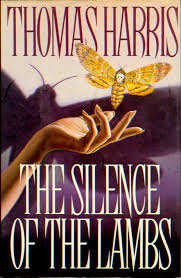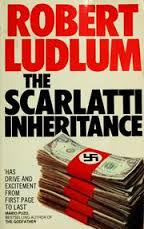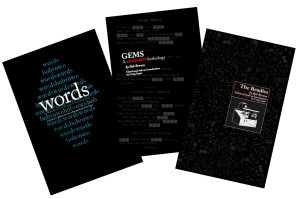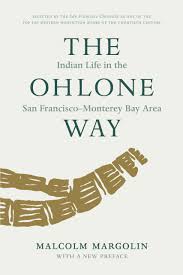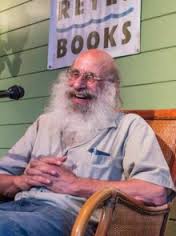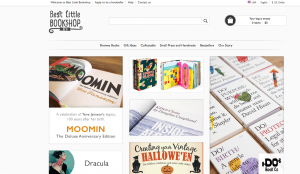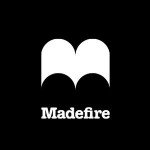David Wilk talks with editor/writer Richard Marek
April 5, 2015 by David
Filed under Publishing History, PublishingTalks
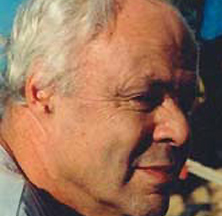 Publishing Talks began as a series of conversations with book industry professionals and others involved in media and technology about the future of publishing, books, and culture. As we continue to experience disruption and change in all media businesses, I’ve been talking with some of the people involved in our industry about how they believe publishing might evolve as our culture is affected by technology and the ebb and flow of civilization and economics.
Publishing Talks began as a series of conversations with book industry professionals and others involved in media and technology about the future of publishing, books, and culture. As we continue to experience disruption and change in all media businesses, I’ve been talking with some of the people involved in our industry about how they believe publishing might evolve as our culture is affected by technology and the ebb and flow of civilization and economics.
I’ve now expanded the series to include conversations that go beyond the future of publishing. I’ve talked with editors and publishers who have been innovators and leaders in independent publishing in the past and into the present, and will continue to explore the ebb and flow of writing, books, and publishing in all sorts of forms and formats, as change continues to be the one constant we can count on.
It’s my hope that these conversations can help us understand the outlines of what is happening in publishing and writing, and how we might ourselves interact with and influence the future of publishing as it unfolds. This new interview reflects my interest in the history of independent literary publishing, an area in which I have been active for a long time. And this particular conversation reflects some longstanding personal relationships as well.
Richard Marek’s career in publishing began as an acquiring editor at Macmillan; he went on to World Publishing in 1967, and became Editor-in-Chief at The Dial Press in 1972. He acquired the manuscript of a first novel called The Scarlatti Inheritance by the then unknown author named Robert Ludlum, worked on it with him for over two years, and of course it later became a national bestseller. Marek edited Ludlum’s next eight books, including The Bourne Inheritance. He acquired and edited books by more than 100 writers, including James Baldwin, Mira Rothenberg, John Yount and David Morrell. In 1978, he was given his own imprint (“Richard Marek Publishers”) at G.P. Putnam’s, and moved it to St. Martin’s Press (“St. Martin’s/Marek”) where, among many other books, he acquired Thomas Harris’ The Silence of the Lambs and Robert Greysmith’s Zodiac. In 1989, Marek became President and Publisher of E.P. Dutton, where he edited a number of bestselling books.
After Dutton became a subsidiary of Viking/Penguin, Marek moved to Crown as Editor-at-Large and thereafter became an independent editor, evaluating manuscripts, editing and ghostwriting, which he calls “a glorious and rewarding career.”
In the past 10 years, he has edited some 120 books, working for publishers, agents, and unrepresented writers. And he has also become an in-demand ghostwriter. He reports that he enjoys writing mornings and editing during afternoons.
Richard is now the ghostwriter of fourteen books, fiction and nonfiction, among them Trisha Meili‘s I Am the Central Park Jogger (a national bestseller), James Patterson’s Hide and Seek (a national bestseller), Brian Weiss’ Same Soul, Many Bodies, Ilanna Rubenfeld’s The Listening Hand, David Grand’s Emotional Healing at Warp Speed, and David Hackworth’s Steel My Soldiers’ Hearts.
And I am happy to say that I have had the opportunity to publish a lovely novel authored by Richard and his wife, the writer Dalma Heyn. It’s a love story for grown ups called A Godsend.
Dick is an active member of the Independent Editors Group – more about him and that organization here.
For this Publishing Talks series, I thought it would be fun and valuable to talk to Dick about the past, present and future of publishing from his unique perspective. His long and successful experience in commercial and literary publishing as editor, publisher, and now writer, provides him with an amazing depth of knowledge and an unending well of anecdotes and stoies. What he has to say during our conversation in his home will not disappoint. He is a great conversationalist with important things to say about book publishing.
Podcast: Play in new window | Download
David Wilk talks with Doug Messerli of Green Integer
February 21, 2015 by David
Filed under Ebooks and Digital Publishing, Publishing History, PublishingTalks
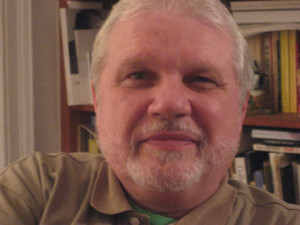 Publishing Talks began as a series of conversations with book industry professionals and others involved in media and technology about the future of publishing, books, and culture. As we continue to experience disruption and change in all media businesses, I’ve been talking with some of the people involved in our industry about how publishing might evolve as our culture is affected by technology and the larger context of civilization and economics.
Publishing Talks began as a series of conversations with book industry professionals and others involved in media and technology about the future of publishing, books, and culture. As we continue to experience disruption and change in all media businesses, I’ve been talking with some of the people involved in our industry about how publishing might evolve as our culture is affected by technology and the larger context of civilization and economics.
I’ve now expanded the series to include conversations that go beyond the future of publishing. I’ve talked with editors and publishers who have been innovators and leaders in independent publishing in the past and into the present, and will continue to explore the ebb and flow of writing, books, and publishing in all sorts of forms and formats, as change continues to be the one constant we can count on.
It’s my hope that these Publishing Talks can help us understand the outlines of what is happening in publishing and writing, and how we might ourselves interact with and influence the future of publishing as it unfolds.
Douglas Messerli is an old friend in poetry and publishing – I’ve known him since sometime in the late 1970’s. He’s one of the most prolific writers and publishers I know of, with an encyclopedic mind and a scope of interests that is virtually unmatched (and how much he writes and how well…it is hard for me to fathom how he does so much and is so consistently intelligent and perceptive on so many subjects!)
Although his writing is inevitably interwoven with his publishing work, this conversation is mainly focused on Doug’s efforts over the years as an editor and publisher. So we talked about his first publishing projects, Sun & Moon (magazine and books), La-Bas (magazine) and then his more recent work with the highly prolific Green Integer. It’s a wide ranging conversation reflecting Doug’s broad interests in writing, art, and publishing, and his always deeply engaged intellect.
Doug, his partner Howard Fox, and Green Integer are strongly identified with Los Angeles and the literary and art scene there. But the influence of his work extends worldwide. The level and intensity of engagement with readers, writers and artists reflects an intentional process on Messerli’s part – he invites the reader to participate in every aspect of his creative process, both in writing and in presenting the work of innovative writers and artists across a wide range of aesthetics and backgrounds, generations and geography. That’s why, for a long period of time, Messerli ran a public gallery and salon in Los Angeles to reach beyond publishing, and why Green Integer is so thoroughly digital in its publishing model.
His is a decidedly modern, globally engaged effort that is unmatched in contemporary publishing.
Length alert: this interview is almost exactly an hour long. It went by really fast for me, and I hope you find listening to Doug Messerli as interesting as I did.
The Green Integer website is exceptional. Go there now for an incredible array of interesting, complicated and challenging writing with a deeply international and avant garde focus.
A nice bit of Sun & Moon history here at SUNY Buffalo’s archive.
And a wonderful collection of free PDFs of La-Bas here at the incredibly rich Jacket2 website.
I love Doug’s essay on Bob Brown (a poet I first heard of through Jerry Rothenberg) on a website I recommend visiting right away –Hyperallergenic.
And to extend the conversation further, here is an exceptionally interesting interview published on Harriet, the blog of the Poetry Foundation (which recursively enough is entitled: Republished Douglas Messerli Interview on Green Integer Blog).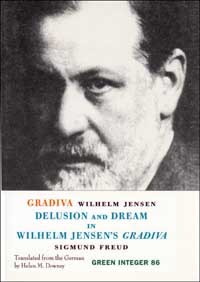
Podcast: Play in new window | Download
David Wilk talks with Dominique Raccah of Sourcebooks
February 1, 2015 by David
Filed under Ebooks and Digital Publishing, Publishing History, PublishingTalks, Technology, The Future
 Publishing Talks began as a series of conversations with book industry professionals and others involved in media and technology about the future of publishing, books, and culture. As we continue to experience disruption and change in all media businesses, I’ve been talking with some of the people involved in our industry about how publishing might evolve as our culture is affected by technology and the larger context of civilization and economics.
Publishing Talks began as a series of conversations with book industry professionals and others involved in media and technology about the future of publishing, books, and culture. As we continue to experience disruption and change in all media businesses, I’ve been talking with some of the people involved in our industry about how publishing might evolve as our culture is affected by technology and the larger context of civilization and economics.
I’ve now expanded the series to include conversations that go beyond the future of publishing. I’ve talked with editors and publishers who have been innovators and leaders in independent publishing in the past and into the present, and will continue to explore the ebb and flow of writing, books, and publishing in all sorts of forms and formats, as change continues to be the one constant we can count on.
It’s my hope that these conversations can help us understand the outlines of what is happening in publishing and writing, and how we might ourselves interact with and influence the future of publishing as it unfolds.
Dominique Raccah is the founder and CEO of independent publisher Sourcebooks, based in Naperville, Illinois, which she began in 1987 after an earlier career in advertising. Reflecting Raccah’s background and interests, Sourcebooks has always been strongly oriented toward marketing and promotion, devoting countless hours and dedicating significant resources to research, intelligence and outreach, and to understanding what customers want. This significantly differentiates Sourcebooks from most other independent publishers, so many of whom are more focused on developing content as opposed to what the customer needs or wants.
But Raccah is more than a smart marketer. She is a highly capable business person, an active entrepreneur, and somewhat of a visionary in terms of technology, business structure. She has been and continues to be willing and able to pivot on her business models and plans much more quickly and readily than most of her peers.
At this stage, after more than a quarter century of successful innovation, she has become a thought leader in the book industry and her presentations about publishing and business structure and opportunities are often models of clarity and deep perception, that are valued by colleagues and competitors alike. In November 2013 she was named FutureBook’s Most Inspiring Digital Publishing Person of 2013.
Indicative of the ways Raccah has embraced technology to drive her business forward, in an interview with the Chicago Tribune last year she said that digital technology “has been transformative because it allows you to tackle new kinds of problems and create new ways of connecting books and readers.”
In our conversation, which took place in New York City in January, 2015, we covered a wide range of topics, from the history of Sourcebooks, through the present business and publishing landscape that interests and motivates Dominique as she continues to moves her company forward in a highly challenging environment. Much of our conversation focuses on Raccah’s industry leading efforts to work directly with readers to make Sourcebooks’ publishing brands meaningful to readers, and to learn directly what consumers want in their reading experiences. After a concerted effort over the past few years, Sourcebooks is now one of the leaders in the book industry in selling books directly to readers. It was a pleasure speaking with Dominique – who gives a great interview – and I hope this is a conversation that will be both useful and valuable to anyone interested in contemporary publishing.
Sourcebooks features a long list of innovative and successful publishing programs and projects, including Poetry Speaks, The Shakesperience, an interactive iBook that combines audio, video and a glossary to aid understanding of Shakespeare’s plays, and Put Me In The Story, which customizes children’s picture books with the reader’s own name and photos to get kids excited about reading.
Raccah has a master’s degree in quantitative psychology from the University of Illinois at Chicago Circle and worked at Leo Burnett’s quantitative research department before starting Sourcebooks in her home in 1987.
Sourcebooks now has 120 employees, eight imprints and publishes more than 350 titles annually, several of which have been national best-sellers in recent years.
Some worthwhile links:
Dominique’s TedX slideshare The Book in Transformation: A Publisher Vision for the Future
Chicago Tribune interview with Dominique Raccah
Mercy Pilkington article Sourcebooks Dominique Raccah Speaks on Driving Innovation
Put Me in the Story site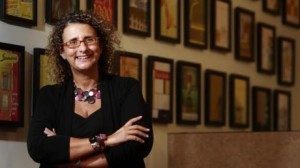
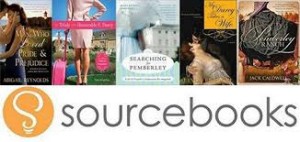
Podcast: Play in new window | Download
David Wilk talks with Malcolm Margolin of Heyday Books
January 11, 2015 by David
Filed under Publishing History, PublishingTalks
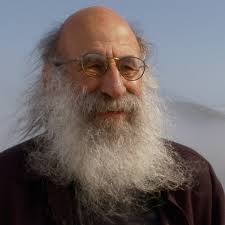 I think of Malcolm Margolin and Heyday Books as one of the iconic independent publishers of the modern era. Founded in 1974 in Berkeley, then and now a hotbed of independent publishing, Heyday began because Malcolm had written a book about walking in the East Bay called East Bay Out and wanted to publish and sell it himself as a locally based book. Its somewhat unexpected success led to his work on a book called The Ohlone Way, about native Americans of California, and by then Heyday was on its way to becoming an important cultural node that over its forty years has produced more than 350 titles.
I think of Malcolm Margolin and Heyday Books as one of the iconic independent publishers of the modern era. Founded in 1974 in Berkeley, then and now a hotbed of independent publishing, Heyday began because Malcolm had written a book about walking in the East Bay called East Bay Out and wanted to publish and sell it himself as a locally based book. Its somewhat unexpected success led to his work on a book called The Ohlone Way, about native Americans of California, and by then Heyday was on its way to becoming an important cultural node that over its forty years has produced more than 350 titles.
The history of Heyday is documented in its newly published The Heyday of Malcolm Margolin: The Damn Good Times of a Fiercely Independent Publisher. The book, compiled by Heyday editor Kim Bancroft, is a wonderful collection of oral histories told by Margolin, his family, authors, friends, current and former staffers and some of the many Californians that have been involved with the press and its cultural work for so many years.
This book is a must read for anyone interested in the history of independent publishing and especially the inspiring Bay Area publishing movement of the last half century. Malcolm is truly one of the great story tellers of our time. Unassuming and irreverent, he is now experienced enough to have become an elder statesman, much loved by all who have worked with him.
Heyday is now a well-run and highly respected nonprofit organization. It has produced a significant body of work, and as an ongoing operation, it reflects the values and beliefs of its founder. Heyday, like Malcolm, is committed to the voices of authors, the beauty and power of California as place, and valuing culture as lived by individuals, more important than institutions. And the quality of the work has always been paramount. Every book produced by Heyday displays a high level of care and attention, learned and practiced over many years.
Heyday board member and former staffer Patricia Wakida describes the quintessential image of Margolin getting into his 1997 Volvo to drive to California’s high country to hear yet another story around the campfire. “That’s what it’s all about,” she says. “Forty years of listening.”
I’m proud to offer this conversation with Malcolm, which gives you the singular opportunity to hear his wonderful voice and persona, to get a sense of why Malcolm and Heyday are so important and meaningful to so many – and what an impact a truly independent publisher can have.
Running time: 47 minutes. Enjoy!
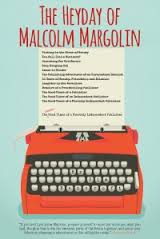
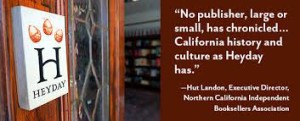
Podcast: Play in new window | Download
David Wilk talks to Kieron Smith about The Best Little Bookshop
October 2, 2014 by David
Filed under PublishingTalks, The Future
 Publishing Talks began as a series of conversations with book industry professionals and others involved in media and technology about the future of publishing, books, and culture. As we continue to experience disruption and change in all media businesses, I’ve been talking with some of the people involved in our industry about how they believe publishing might evolve as our culture is affected by technology and the ebb and flow of civilization and economics.
Publishing Talks began as a series of conversations with book industry professionals and others involved in media and technology about the future of publishing, books, and culture. As we continue to experience disruption and change in all media businesses, I’ve been talking with some of the people involved in our industry about how they believe publishing might evolve as our culture is affected by technology and the ebb and flow of civilization and economics.
I’ve now expanded the series to include conversations that go beyond the future of publishing. I’ve talked with editors and publishers who have been innovators and leaders in independent publishing in the past and into the present, and will continue to explore the ebb and flow of writing, books, and publishing in all sorts of forms and formats, as change continues to be the one constant we can count on.
It’s my hope that these conversations can help us understand the outlines of what is happening in publishing and writing, and how we might ourselves interact with and influence the future of publishing as it unfolds.
UPDATE: as of January 27, 2015, it was announced that (sadly) Best Little Bookshop will be closing and Kieron Smith moving on to other pursuits. Still, this discussion ought to remain interesting to anyone who is thinking about bookselling and consumer interaction with books.
Kieron Smith is a long time bookseller and founder of the new online bookstore, The Best Little Bookshop. This new site takes a different approach to online retail book selling than others have done. There is much more emphasis on curation, more in-depth presentation of books and publishers, social interaction onsite from customers, and importantly, the participation of other booksellers from the outset. And the store, while based in the UK, is friendly to buyers from other countries. I’ve spent a fair amount of time playing around with BLB, and for me, it’s a great experience. I’ve discovered books and publishers I’ve never heard of and that I am interested in reading and buying. I’m looking forward to seeing how Kieron and his team integrate other booksellers into the store experience and how its community of users will influence the direction the store takes in the future.
Best Little Bookshop is clear evidence that it is possible to create new models of retail book selling online. The store launched in summer 2014, so as of now, there are still features in development, and doubtless more changes and improvements to come. My conversation with Kieron was exciting for me, as I see so much potential with this site for publishers, authors and readers, and wanted to hear first hand how the founder views the future. One interesting point – no ebooks here, just print.
Alert: this is a relatively long interview at 41 minutes. Take your time and enjoy!
Kieron Smith has over 17 years of book trade experience, starting with WHSmith Retail, establishing the multi-channel Ottakars.co.uk website in 1999, heading up the web offering at BCA and operations at Methven’s Booksellers, followed by three years outside the industry at Europe’s leading video games website GAME.co.uk. Head of online for Waterstones.com in 2006-7 and then MD of international online book retailer The Book Depository (purchased by Amazon in 2011) for five years until November of 2013. The Book Depository was acquired by Amazon.com in 2011.
Podcast: Play in new window | Download
David Wilk talks with Andrew Lipstein about 0s and 1s
July 20, 2014 by David
Filed under Ebooks and Digital Publishing, PublishingTalks, The Future
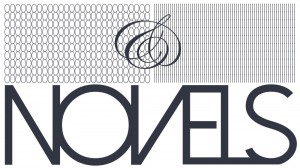 Publishing Talks began as a series of conversations with book industry professionals and others involved in media and technology about the future of publishing, books, and culture. As we continue to experience disruption and change in all media businesses, I’ve been talking with some of the people involved in our industry about how they believe publishing might evolve as our culture is affected by technology and the ebb and flow of civilization and economics.
Publishing Talks began as a series of conversations with book industry professionals and others involved in media and technology about the future of publishing, books, and culture. As we continue to experience disruption and change in all media businesses, I’ve been talking with some of the people involved in our industry about how they believe publishing might evolve as our culture is affected by technology and the ebb and flow of civilization and economics.
I’ve now expanded the series to include conversations that go beyond the future of publishing. I’ve talked with editors and publishers who have been innovators and leaders in independent publishing in the past and into the present, and will continue to explore the ebb and flow of writing, books, and publishing in all sorts of forms and formats, as change continues to be the one constant we can count on.
It’s my hope that these conversations can help us understand the outlines of what is happening in publishing and writing, and how we might ourselves interact with and influence the future of publishing as it unfolds. This new interview reflects my interest in the history of independent literary publishing, an area in which I have been active for a long time. And this particular conversation reflects some longstanding personal relationships as well.
Andrew Lipstein is one of the new wave of writers interested in changing the way books are published, distributed and read. When I first read about his new venture 0s and 1s, I was immediately interested (that’s “zeroes and ones” – I misread it initially as “os and 1s” and you will hear that in my interview with Andrew). 0s and 1s is a curation project, offering ebooks for download at very attractive prices selected from a limited number of like-minded independent publishers. It is diametrically opposed to the way we have been trained to think about ebook retailing, where for the most part, readers are tied to the ecosystems created by the platform owners.
For example, if you are a Kindle reader, you buy all your ebooks from Amazon, for example, and whether you know it or not, or care or not, your choices of what to read, or what to think about reading, are highly contextualized. Online ebook stores have incredible limitations, and ironically, the huge breadth of titles potentially available to readers ultimately mean a hegemonically limited selection of reading possibilities.
As Andrew states on the 0s and 1s site: “The selling of digital books has become an oligopoly, with only a few important players—& a lot of power. The world of e-reading shouldn’t be proprietary to any one brand, reader, or (set of) publishers. Selling a digital book is as simple as transmitting a series of zeroes & ones, & there’s never been a better time to take advantage of that fact.”
Personally, I think it’s an opportune moment for publishers and writers to start experimenting with alternative models of engaging with readers. Andrew and the publishers and authors he is promoting here deserve credit and support for taking a necessary step toward demonstrating how we might imagine alternatives to big box retail book selling and a better way to promote a culturally diverse and meaningful reading culture. 0s and 1s is aware of the need to explain to readers what it’s doing by selling all its ebooks at $6 each and has a very clear explanation of why this is good for authors on its website.
Andrew Lipstein is a writer too, and also curates a really interesting micro-publishing site, well worth a visit, called Thickjam.
In many ways this project reminds me of some of the experiments in independent book distribution and marketing from the seventies (many supported by what was then called CCLM, the Coordinating Council of Literary Magazines – now called CLMP – with a grant from the Ford Foundation). Some of those projects were highly influential and in various forms lasted for a number of years. I hope we can say the same about 0s and 1s in the future.
If you’re interested in the history of CCLM and CLMP and the organization’s key role in supporting independent magazine and book publishers, there is a nice bit of history here. The Publishing Talks interview with CLMP’s current dynamic director Jeffrey Lependorf is here. You can find links to publishers participating in the 0s and 1s project here. One of the several distribution projects funded by CCLM and the Ford Foundation was Truck Distribution Service, started in St. Paul, MN, by yours truly, which later became the very successful small press wholesaler, Bookslinger, and another was the still flourishing Writers and Books, founded in Rochester, NY, by Joe Flaherty.
Thanks to John Marshall Media and engineer Nathan Rosborough for this recording.
Podcast: Play in new window | Download
David Wilk Interviews Charles Bernstein of L=A=N=G=U=A=G=E Magazine
April 12, 2014 by David
Filed under Publishing History, PublishingTalks
 Publishing Talks began as a series of conversations with book industry professionals and others involved in media and technology about the future of publishing, books, and culture. As we continue to experience disruption and change in all media businesses, I’ve been talking with some of the people involved in our industry about how they believe publishing might evolve as our culture is affected by technology and the ebb and flow of civilization and economics.
Publishing Talks began as a series of conversations with book industry professionals and others involved in media and technology about the future of publishing, books, and culture. As we continue to experience disruption and change in all media businesses, I’ve been talking with some of the people involved in our industry about how they believe publishing might evolve as our culture is affected by technology and the ebb and flow of civilization and economics.
Recently, the series has expanded to include conversations that go beyond the future of publishing. I’ve talked with editors and publishers who have been innovators and leaders in independent publishing in the past and into the present, and will continue to explore the past, present and future of writing, books, and publishing in all sorts of forms and formats, as change continues to be the one constant we can count on.
It’s my hope that these conversations can help us understand the outlines of what is happening in publishing and writing, and how we might ourselves interact with and influence the future of publishing as it unfolds. Some of my latest interviews reflect my interest in the history of independent literary publishing, an area I have been involved in for a very long time.
Charles Bernstein has been a poet, editor, theorist and teacher of poetry and poetics, and is best known as a leader of what has become known as the LANGUAGE school of poetry. Between 1978 and 1981, Charles and poet Bruce Andrews edited the truly extraordinary journal they called L=A=N=G=U=A=G=E, that has become one of the most influential literary magazines of the last half century. That magazine, which circulated a relatively small number of copies during a relatively short period of time (13 issues), helped to establish and define what was then mostly an outsider and alternative challenge to contemporary poetry and thinking about reading poetry and which has now become a fixture in modern poetry and poetics. All the issues of the magazine are available online here.
Since that time, Charles has taught and continued to help establish influential organizations. He was the David Gray Professor of Poetry and Letters at the SUNY Buffalo and Director of the Poetics Program, which he co-founded with poet Robert Creeley. At SUNY, he co-founded the Electronic Poetry Center and is currently the Donald T. Regan Professor of English and Comparative Literature at the University Pennsylvania. He also is a co-founder of the outstanding and wonderful poetry audio archive at UPenn called PennSound (there’s a Writerscast interview with Charles, Al Filreis and Michael Hennessey here).
Our conversation about L=A=N=G=U=A=G=E continues my effort to document at least a small portion of the creative work of independent literary publishing of the late 20th century, that has been so important to the development of contemporary literary culture.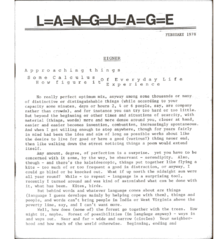
The anthology mentioned in the talk, The L=A=N=G=U=A=G=E Book (Poetics of the New), was published by Southern Illinois University Press, and is in print and available.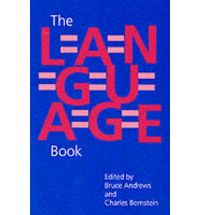 Note to listeners: as with all these historically based conversations about literary publishing, this is a relatively long listen, at about 48 minutes.
Note to listeners: as with all these historically based conversations about literary publishing, this is a relatively long listen, at about 48 minutes.
Podcast: Play in new window | Download
David Wilk interviews Bradford Morrow of Conjunctions Magazine
March 17, 2014 by David
Filed under Ebooks and Digital Publishing, Publishing History, PublishingTalks
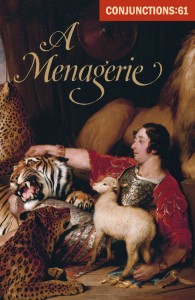 Publishing Talks began as a series of conversations with book industry professionals and others involved in media and technology about the future of publishing, books, and culture. As we continue to experience disruption and change in all media businesses, I’ve been talking with some of the people involved in our industry about how they believe publishing might evolve as our culture is affected by technology and the ebb and flow of civilization and economics.
Publishing Talks began as a series of conversations with book industry professionals and others involved in media and technology about the future of publishing, books, and culture. As we continue to experience disruption and change in all media businesses, I’ve been talking with some of the people involved in our industry about how they believe publishing might evolve as our culture is affected by technology and the ebb and flow of civilization and economics.
Recently, the series has expanded to include conversations that go beyond the future of publishing. I’ve talked with editors and publishers who have been innovators and leaders in independent publishing in the past and into the present, and will continue to explore the past, present and future of writing, books, and publishing in all sorts of forms and formats, as change continues to be the one constant we can count on.
It’s my hope that these conversations can help us understand the outlines of what is happening in publishing and writing, and how we might ourselves interact with and influence the future of publishing as it unfolds. My latest interview reflects my interest in the history of independent literary publishing, an area I have been involved in for a very long time.
Bradford Morrow is an accomplished novelist and poet. In fact we talked about his outstanding novel The Diviner’s Tale in 2011. Brad is also the founder and editor of Conjunctions magazine, which he began in 1981. Conjunctions is truly an exceptional literary endeavor that is now sponsored and hosted by Bard College. Conjunctions has long provided a platform for a host of unknown writers, many of whom are now well known, as well as enabling a number of established writers to create work that challenges reader expectations. Every May and November the magazine publishes anthology form collections around specific themes that include significant long-form work.
Conjunctions has embraced digital publishing, offering a weekly online journal of new work by individual authors, called Web Conjunctions, as well as a multimedia collection of recorded readings, and an archival collection of full-text selections from the anthologies. In particular, I like this line on their website, as an appropriate epigraph for the three-plus decades Conjunctions has been publishing: “a living notebook in which authors can write freely and audiences can read dangerously.” I can’t think of a better motto under which to publish.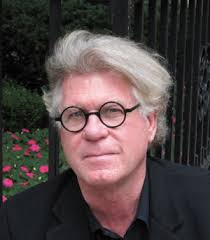
It was a pleasure for me to spend some time talking to Brad about the past, present and future of Conjunctions and the challenges and enjoyments of the work of literary publishing, and I hope also just as much a pleasure for you to hear what Brad has to say here.
(Alert to listeners – as are many of the Publishing Talks interviews, this one is quite long at 51 minutes, but you can always pause and return if it’s too long for one sitting)
Podcast: Play in new window | Download
Publishing Talks: David Wilk interviews DeWitt Henry of Ploughshares
February 10, 2014 by David
Filed under Publishing History, PublishingTalks
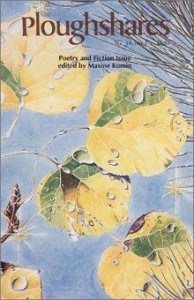 Publishing Talks began as a series of conversations with book industry professionals and other smart people about the future of publishing, books, and culture. As we continue to experience disruption and change in all media businesses, I’ve been talking with some of the people involved in our industry about how they believe publishing might evolve as our culture is affected by technology, climate change, population density, and the ebb and flow of civilization and economics.
Publishing Talks began as a series of conversations with book industry professionals and other smart people about the future of publishing, books, and culture. As we continue to experience disruption and change in all media businesses, I’ve been talking with some of the people involved in our industry about how they believe publishing might evolve as our culture is affected by technology, climate change, population density, and the ebb and flow of civilization and economics.
Recently, the series has been expanding to include conversations about a wider range of subjects beyond my initial interest in the future of publishing. I’ve talked with editors and publishers who have been innovators and leaders in independent publishing in the past and into the present, and will continue to explore the past, present and future of writing, books, and publishing in all sorts of forms and formats, as change continues to be the one constant we can count on.
It’s my hope that these conversations can help us understand the outlines of what is happening in publishing and writing, and how we might ourselves interact with and influence the future of publishing as it unfolds. This week’s interview reflects my interest in comic art, illustrated story telling and new technology as a platform for expanding story telling in interesting and challenging ways.
Ploughshares is one of the great literary magazines of the last fifty years. Founded in 1971 in Boston by writer, teacher and scholar DeWitt Henry and writer and bar owner Peter O’Malley, it has gone on brilliantly from very humble beginnings to publish an extraordinary range of writing. Founded in a bar called the Plough and the Stars in Cambridge, Massachusetts, Ploughshares to give the young and upcoming writers of its time a voice and a platform, the magazine has been a literal breeding ground for great writers of fiction, poetry and nonfiction as well.
One of its innovations was to invite writers to guest edit individual issues. The list of editors is pretty incredible, including Seamus Heaney, Derek Walcott, Rita Dove, James Alan McPherson, Philip Levine, Gerald Stern, Raymond Carver, Rosellen Brown, Maxine Kumin, Donald Hall, Marilyn Hacker, Mark Doty, Richard Ford, Sherman Alexie, and many others. Ploughshares editors have received almost every award given in American writing. Throughout its now celebrated history, Ploughshares has managed to maintain a high level of excellence in writing and has avoided being trapped by the narrowness of a particular school or narrow vision of what American writing can be. It has consistently nurtured new talent, and continues today to bring attention to new writers. And lately, Ploughshares has broadened the definition of what a literary magazine can be with an innovative series of ebooks called Ploughshares Solos.
Interviewing DeWitt Henry about the history of the magazine, bis work as editor and writer, and the current and future of Ploughshares was a great pleasure for me. Having been involved in literary publishing and distribution myself, I know how incredibly difficult it is to sustain both the artistic and structural vision in this kind of publishing. Ploughshares truly represents an extraordinary accomplishment for those who have worked on it, published in it, and of course read the magazine during the many years of its existence.
There’s an excellent history of the magazine on it website. And you might want to visit DeWitt Henry’s own website to learn more about him as well. He is am accomplished and interesting writer too. Alert to listeners, as this is part of an effort to document the oral history of literary publishing, this is a longer than usual podcast – but worth your time to listen.
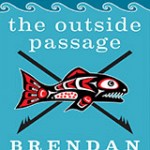
Podcast: Play in new window | Download
Publishing Talks: David Wilk interviews Liam Sharp and Ben Abernathy of Madefire
January 6, 2014 by David
Filed under Ebooks and Digital Publishing, PublishingTalks, Technology
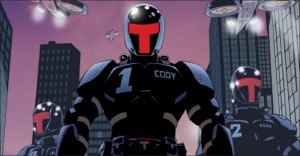 Publishing Talks began as a series of conversations with book industry professionals and other smart people about the future of publishing, books, and culture. As we continue to experience disruption and change in all media businesses, I’ve been talking with some of the people involved in our industry about how they believe publishing might evolve as our culture is affected by technology, climate change, population density, and the ebb and flow of civilization and economics.
Publishing Talks began as a series of conversations with book industry professionals and other smart people about the future of publishing, books, and culture. As we continue to experience disruption and change in all media businesses, I’ve been talking with some of the people involved in our industry about how they believe publishing might evolve as our culture is affected by technology, climate change, population density, and the ebb and flow of civilization and economics.
Recently, the series has been expanding recently to include conversations about a wider range of subjects than my initial interest in the future of publishing. I’ve talked with editors and publishers who have been innovators and leaders in independent publishing in the past and into the present, and will continue to explore the past, present and future of writing, books, and publishing in all sorts of forms and formats, as change continues to be the one constant we can count on.
It’s my hope that these conversations can help us understand the outlines of what is happening in publishing and writing, and how we might ourselves interact with and influence the future of publishing as it unfolds. This week’s interview reflects my interest in comic art, illustrated story telling and new technology as a platform for expanding story telling in interesting and challenging ways.
Madefire is a very cool development in the evolution of technology platforms that enable digital storytelling. Founded by Ben Wolstenholme, Eugene Walden and artist/writer Liam Sharp, Madefire has big ambitions, and has drawn significant support from investors, creators and readers. In their own words, it’s a big play: “Madefire is undertaking an epic journey – One that we believe will revolutionize how stories are told, read, and shared. One that will transform a once static medium into an interactive experience that unfolds dynamically on mobile devices, and evolves with each new episode. It’s our Motion Book Tool that will make all this possible. We built it to unite the timeless beauty of sequential art with cutting-edge technology, and to give new creative freedom to the world’s most visionary creators and storytellers. All in the service of advancing the art of storytelling.”
At the October 2013 New York Comicon, I had a chance to get a demo of the software in action and was impressed by the Madefire approach, which provides comic artists with a whole new set of tools to enhance the visual storytelling mode in digital form. What is most appealing is the organicism of the approach – they are not trying to overwhelm us with game based features, but enabling the creators to expand their vision and engage their readers. It is indeed a big project and new developments continue to emerge. They call what they are making “Motion Books” which gets across pretty clearly what they are after. Their alliance with DeviantArt is a mind opening approach to publishing and engaging with communities of readers and creators online.
For this Publishing Talks interview, I spoke with both founder and CCO Liam Sharp and editor Ben Abernathy, formerly a group editor at DC Comics. I highly recommend downloading the Madefire app and experiencing some of the work that has been made using the Madefire tools. Listeners please note, this is a relatively long interview at just over 40 minutes.
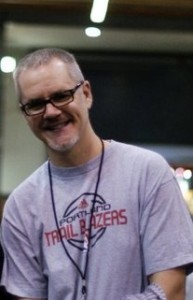
Podcast: Play in new window | Download

